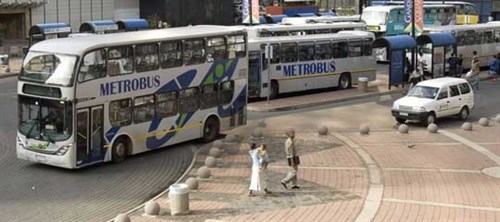Metrobus, the commuter bus operator owned by the City of Johannesburg, is in negotiations with its shareholder to receive its subsidy on the basis of "services rendered", rather than an annual grant of about R300m.
This comes as Putco, its main competitor - which is also SA's biggest commuter bus company - has withdrawn services on certain loss-making routes in Gauteng. This prompted the provincial government to set up a task team to review and make proposals on the future structure of bus contracts.
The proposed model would see Metrobus receive payment from the city according to the number of passengers transported or kilometres travelled. Passengers would pay in advance through a ticketing system, rather than in cash each time they boarded a bus.
MD Mavela Dlamini said on Monday, 4 May, the city had allocated R500m for Metrobus to replace part of its ageing fleet. The bus operator was looking at ways to generate its own revenue to continuously replace its rolling stock without relying on the city.
Metrobus transports more than 10-million people annually and its buses cover about 12-million kilometres a year.
Dlamini said the company was considering operating in underserviced areas such as Midrand, Ivory Park and Diepsloot. Some routes where Metrobus competed with Rea Vaya, could be abandoned. Metrobus was also working on adding feeder routes to its network, for routes that have low patronage.
Transport analyst Andrew Marsay said on Monday Metrobus had not been responsive to demands for route and schedule changes to suit the needs of commuters. A different revenue model could be an incentive to the operator to provide a better service.
However, Metrobus could find the switch from grants to services rendered payment challenging.
"It may be difficult because they are used to getting a subsidy each year. But it makes sense to put the company under pressure to deliver and an incentive to perform."
Dlamini said buses should be replaced once they were 10 to 12 years old. The cash injection would enable them to buy 150 buses. More than 250 of their 412 buses were more than 11 years old.
Source: Business Day













































